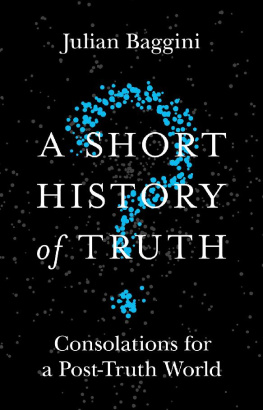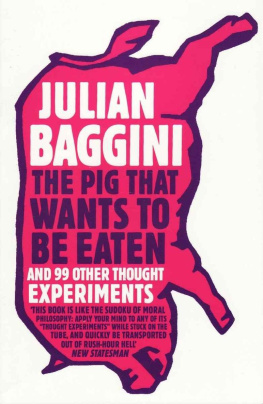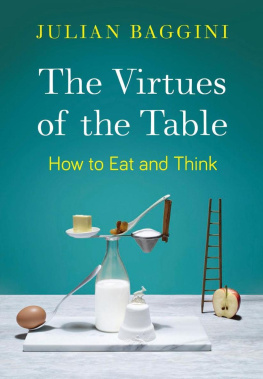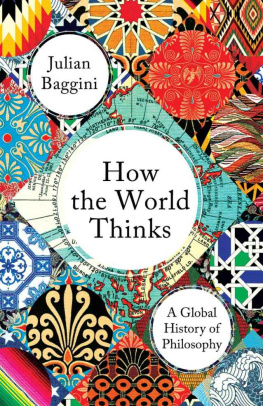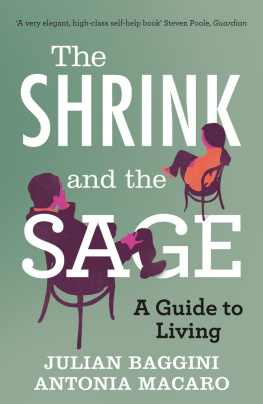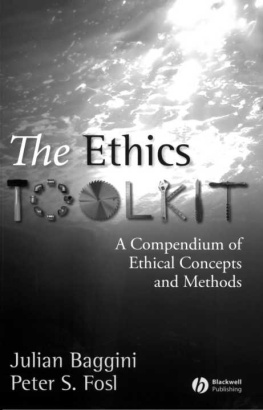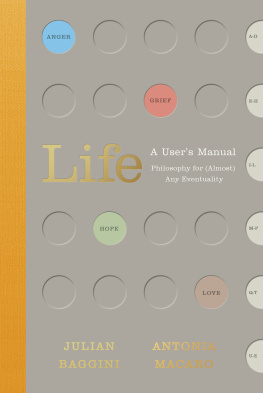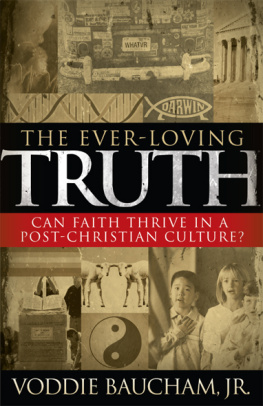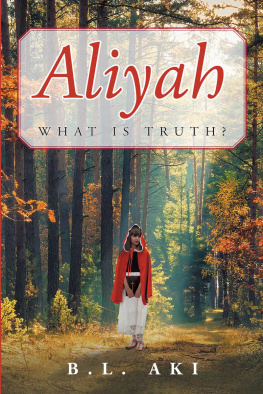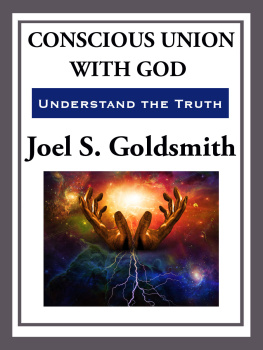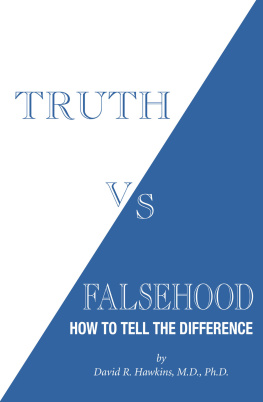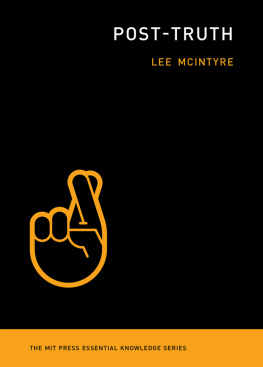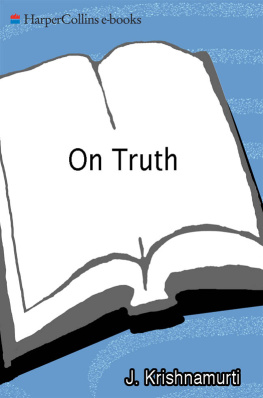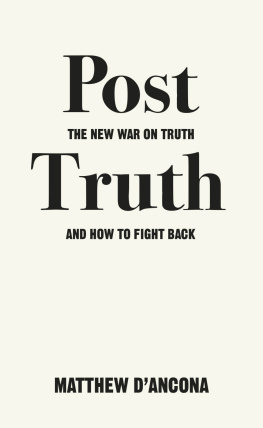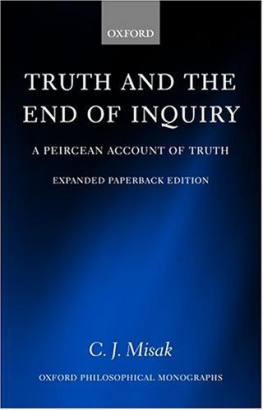A Short History of Truth
Julian Baggini
Contents
This ebook edition first published in 2017 by
Quercus Editions Ltd
Carmelite House
50 Victoria Embankment
London EC4Y 0DZ
An Hachette UK company
Copyright Julian Baggini 2017
The moral right of Julian Baggini to be identified as the author of this work has been asserted in accordance with the Copyright, Designs and Patents Act, 1988.
All rights reserved. No part of this publication may be reproduced or transmitted in any form or by any means, electronic or mechanical, including photocopy, recording, or any information storage and retrieval system, without permission in writing from the publisher.
A CIP catalogue record for this book is available from the British Library
EBOOK ISBN 978 1 78648 890 9
Every effort has been made to contact copyright holders. However, the publishers will be glad to rectify in future editions any inadvertent omissions brought to their attention.
Quercus Editions Ltd hereby exclude all liability to the extent permitted by law for any errors or omissions in this book and for any loss, damage or expense (whether direct or indirect) suffered by a third party relying on any information contained in this book.
www.quercusbooks.co.uk
Also By Julian Baggini
The Edge of Reason
Freedom Regained
The Virtues of the Table
Without God, Is Everything Permitted?
Philosophy: All that Matters
The Ego Trick
What More Philosophers Think
Should You Judge This Book by Its Cover?
The Duck That Won the Lottery (a.k.a. Do They Think Youre Stupid?)
Complaint
Welcome to Everytown: a journey into the English mind
The Pig that Wants to be Eaten and 99 other thought experiments
What Philosophers Think
Whats It All about? Philosophy and the meaning of life
Atheism: A Very Short Introduction
Making Sense: Philosophy Behind the Headlines
While we falsely admire and extol the powers of the human mind we neglect to seek for its true helps.
Francis Bacon
Introduction
When I was growing up, I discovered The Plain Truth . It was something of a novelty, the only free magazine stacked in pavement dump bins in my small home town. The title was worthy of a marketing award, with an extra commendation for its strapline: A Magazine of Understanding. Who wouldnt want to know the truth, to understand the world? I picked one up and in time sent off for a free subscription. I wasnt alone. At its peak in 1986 the monthly had a circulation of 8.2 million copies, 2.3 million more than Time .
The promise of The Truth has always been alluring. The most quoted gospel verse on evangelical posters and literature is John 14:6, in which Jesus proclaims, I am the way, the truth and the life. It resonates because we all have a sense that truth is not merely an abstract property of propositions but somehow essential to living well. If your life turns out to have been built on nothing but lies, it is as though it has not been real. Whether you believe Jesus shows the way or not, Johns promise that The truth shall make you free (8:32) rings true.
Looking back now at The Plain Truth , however, I find the adjective in the title at least as interesting as the noun, with its supremely definite article. Plain and simple are among the most common descriptors of truth, because that is often exactly how the truth seems. Paris is the capital of France, George Washington was the first President of the United States, water is HO: there are innumerable truths like this, which only idiots or obtuse academics (often thought to be the same thing) would deny. Sometimes it is hard to uncover the truth, but that is not because we dont understand what truth itself means. We may never know what happened to the Mary Celeste but there is a truth about it which if we did know would be plain and simple enough.
Even the dominant theories of truth in twentieth century Anglophone philosophy appeared simple to the point of banal. In the 1930s Alfred Tarski proposed: any statement P is true if and only if P is true. For example: Snow is white if and only if snow is white. Blink and you might think this is an empty tautology, like saying black is black. What saves it from vacuity is that P in inverted commas is a linguistic statement while P without inverted commas is a truth about the world. Not quite empty then, and perhaps theoretically important, but hardly a game-changer for the everyday pursuer of truth.
Somehow, however, the truth has ceased to be plain or simple. Indeed, it is not uncommon to hear people deny that there is any such thing as the truth at all, only opinions, what is true-for-you or true-for-me. Scanning millions of books and written texts, Googles N-Gram viewer reveals that the word truth was used only a third as much at the turn of the millennium as it was 150 years previously. The decline in plain and simple truths is even more precipitous.
The problem is not that we lack a proper understanding of what truth means. For practical purposes, it is hard to improve on Aristotles early definition: To say of what is that it is not, or of what is not that it is, is false, while to say of what is that it is, and of what is not that it is not, is true. If that sounds obvious, if a bit cumbersome, perhaps its because theres nothing mysterious about the ordinary meaning of truth. If there is a crisis of truth in the world today, the root of the problem is not the inadequacy of philosophical theories of truth. It can even be argued that in its dogged pursuit of truth, philosophy actually unleashed the sceptical forces that led to its being undermined. How do you know? and What do you mean by... are philosophers questions that have been bastardised by a cynical society.
Our problem is not primarily with what truth means but how and by whom truth is established . Truth used to seem simple because it was easy to assume that most of what we thought to be true really was true, that things were as they seemed, that the wisdom passed down the generations was timeless. This simplicity has been eroded by a variety of different forces. Science showed us that much of what we think about how the world works is false and that we are even mistaken about the workings of our own minds. The pace of its development has left us questioning whether todays orthodoxy will be tomorrows outdated fallacy. In addition, the more the world shrinks through globalisation, the more we have reason to question whether what we take to be true in our cultures really is so or merely a local prejudice. The openness of democratic societies has also allowed the free press to expose more and more of what goes on in the corridors of power, making us more aware of the ways in which we are deceived. And the growth of psychology has enabled more people to master myriad techniques of manipulation, and more people to understand how they work, in a kind of arms race of deception in which truth is the main casualty.
Truth has become much less plain and simple, but I see no evidence at all that most people have ceased to believe in it. People remain as outraged by lies as they have ever done, which would make no sense if they did not believe they were untrue. Falsely accuse the most dedicated post-modernist that they have committed a crime and they will not shrug and accept that your version of events is just one narrative, a construction of reality that is as legitimate as any other. They may resist the language of truth in seminars but they will bite their tongues in court and swear to tell the truth, the whole truth, and nothing but the truth to defend themselves, knowing full well what that means and why it matters.

